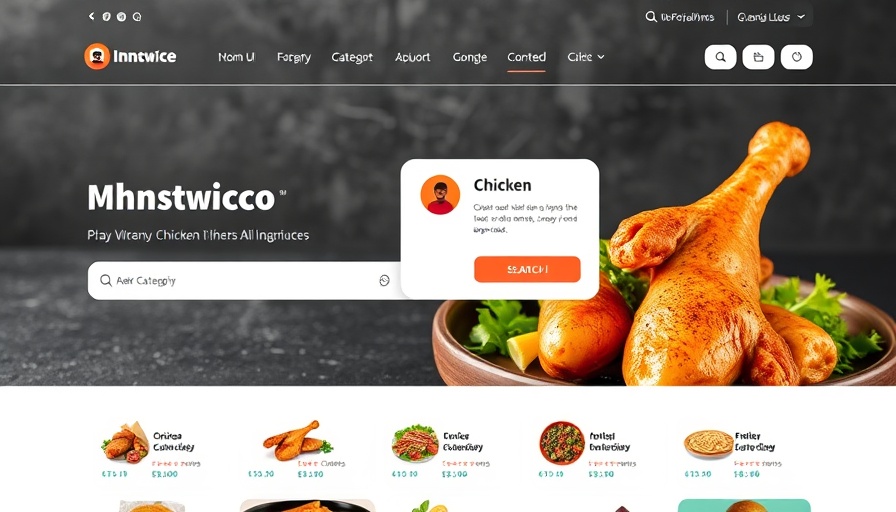
Revolutionizing Customer Engagement with AI
In today's competitive marketplace, the fusion of artificial intelligence (AI) with traditional business operations is proving to be a game-changer. Tyson Foods, one of the largest protein providers in the U.S., has taken a significant step forward by deploying an innovative AI-powered conversational assistant on its Tyson Foodservice website. This move not only showcases their commitment to enhancing customer experience but also highlights how AI can bridge the gap in B2B relationships by connecting previously unattended operators with the products they need.
The Need for Direct Engagement
Tyson Foodservice operates primarily through a B2B model, catering to diverse sectors including restaurants, healthcare facilities, and educational institutions. With over one million operators purchasing Tyson products through distributors, the company identified a crucial need for direct engagement with these customers. This frustration prompted Tyson to seek creative solutions to establish communication and strengthen relationships—solutions that led to the implementation of an AI-driven strategy.
How the AI Assistant Works
The AI-powered assistant, built in collaboration with Amazon Web Services (AWS) Generative AI Innovation Center, utilizes Amazon Bedrock—a platform providing access to advanced foundation models. The process begins when a user enters a query into the search bar on Tyson Foodservice's website. This query is transformed into embeddings, allowing the system to conduct a semantic search that brings relevant results to the forefront. Users can interact using natural language, facilitating a smoother and more intuitive experience.
Benefits of Enhanced Semantic Search
Prior to implementing this technology, the search capabilities on the Tyson Foodservice site were rudimentary, posing a challenge for users seeking specific products or information. By adopting a sophisticated algorithm, Tyson improved the user journey significantly. Customers can now access tailored solutions and menu trends that align with their unique operational needs, increasing satisfaction and loyalty.
Future Impacts of AI in Foodservice
The shift to AI represents a broader trend toward digital transformation within the foodservice industry. Tyson's strategic move indicates a growing acknowledgment among food providers of the necessity for a personalized approach in customer service. This evolution is set to yield valuable insights into consumer behavior, enabling companies to adjust their offerings and marketing strategies accordingly. With AI tools becoming more prevalent, organizations that adopt such innovations will likely seize a competitive advantage.
A New Era for Foodservice Operations
As Tyson Foods leads the charge into an AI-powered future, it exemplifies how technology can redefine customer interactions in traditionally analog industries. The successful integration of AI into their operations may inspire other foodservice companies to explore similar paths, emphasizing the importance of adaptability in a rapidly evolving market landscape.
For leaders in the culinary and foodservice sectors, the message is clear: leveraging AI is not just an option—it's essential for sustained success. As this technology continues to develop, those who prioritize innovative customer engagement strategies will be best positioned to thrive.
 Add Row
Add Row  Add
Add 




Write A Comment